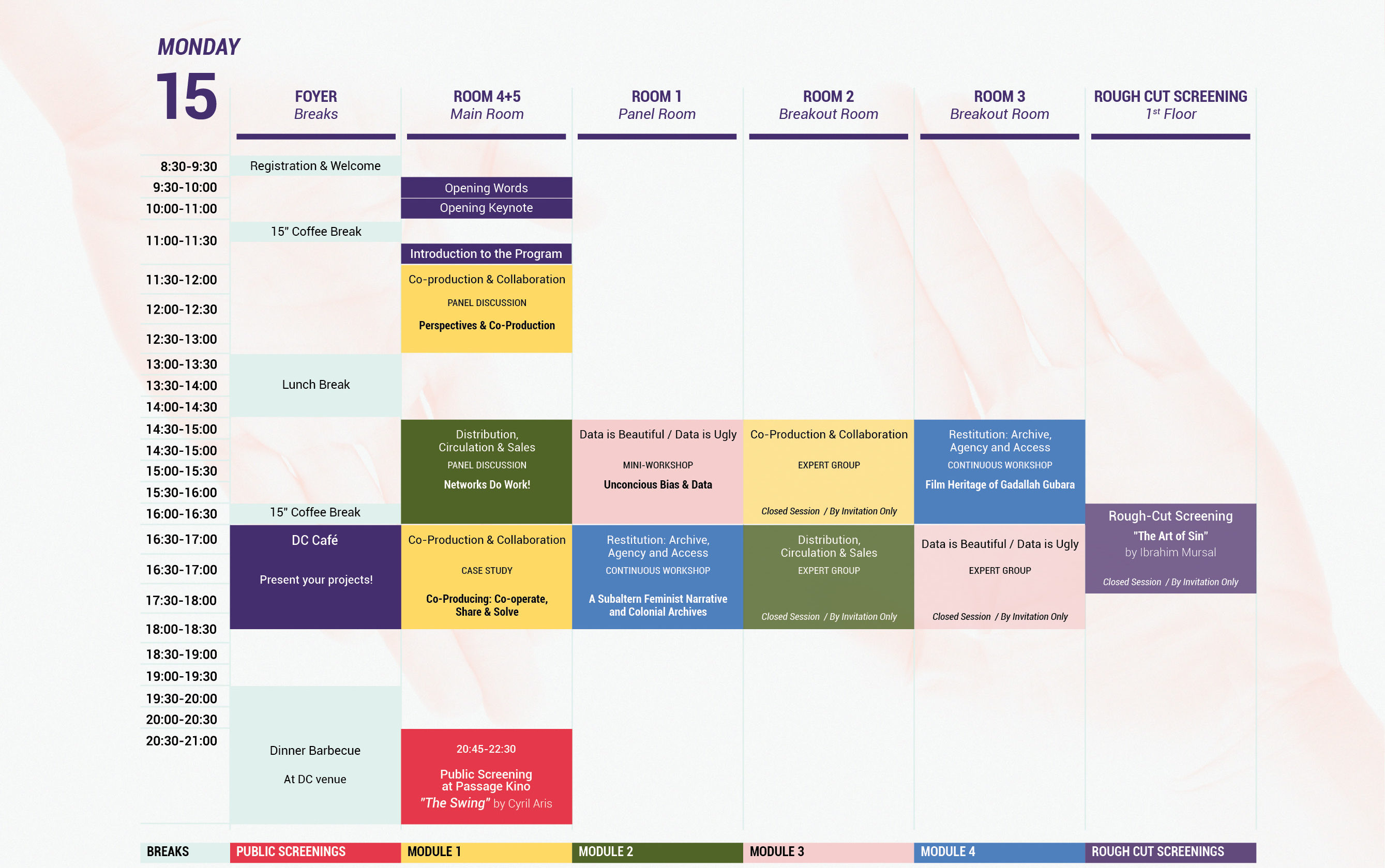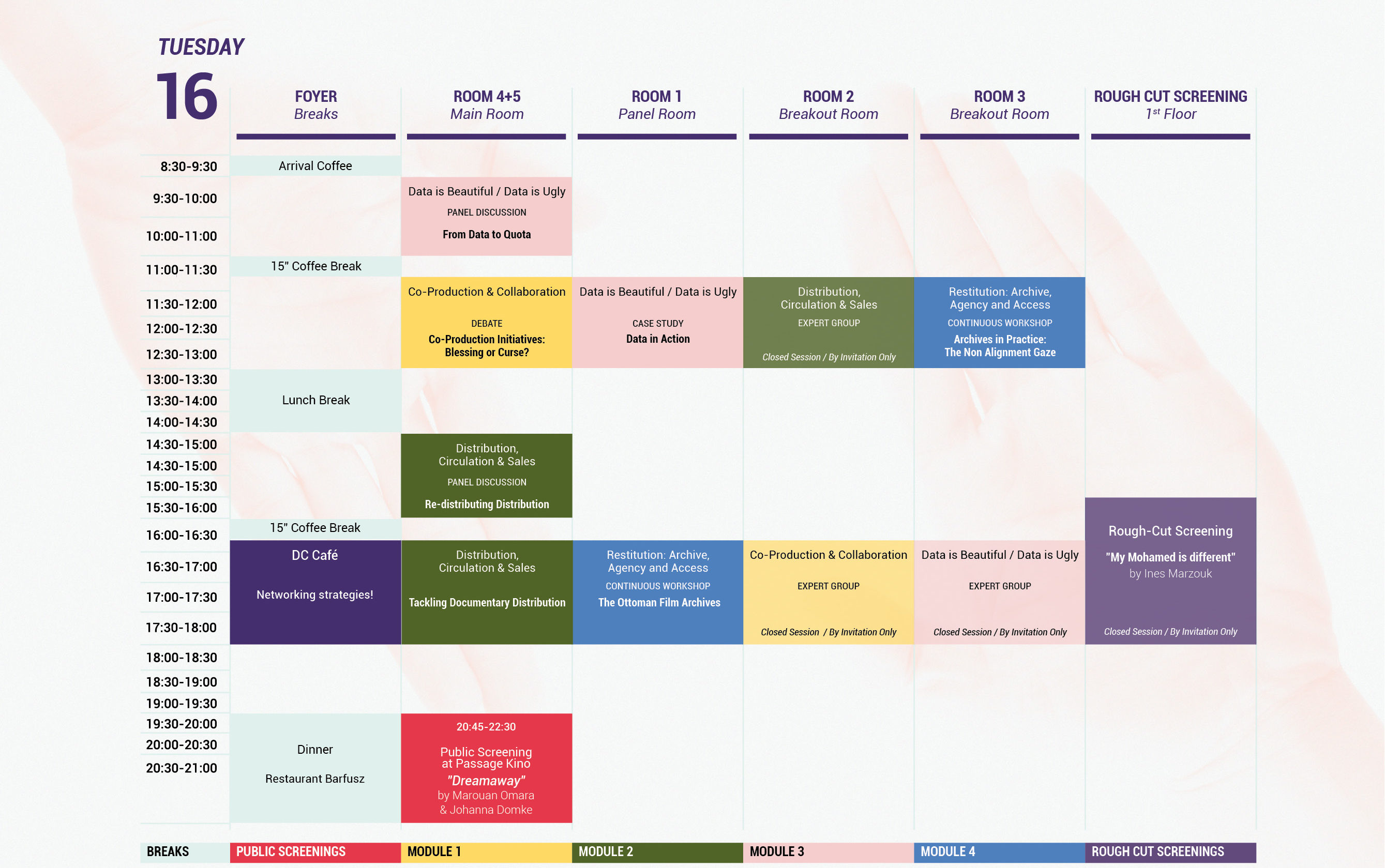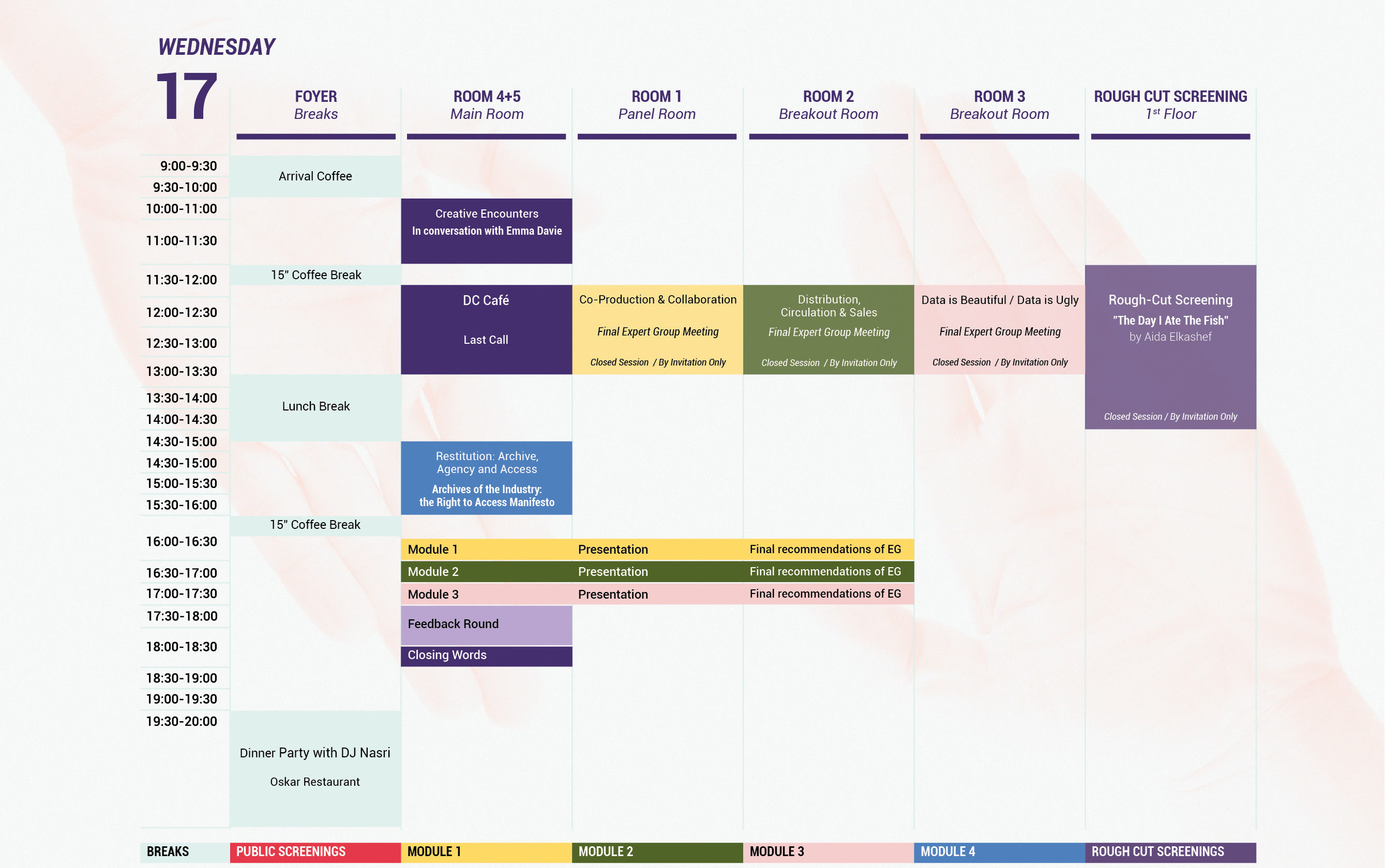Program & Main Modules DC'19
To see who joined us in Leipzig for the 2nd edition of the Documentary Convention, click here.
Main Modules
The program of the Documentary Convention 2019 was structured around leading themes. These were:
- Co-Production & Cross-Border Collaboration
- Distribution, Circulation & Sales
- Data is Beautiful – Data is Ugly
- Continuous Workshop: Restitution: Archive, Agency and Access*
Each module was led by an international core group that worked together throughout the three convention days and presented the outcome of their work in short presentations on the last day of the Documentary Convention 2019.
When production companies enter a co-production together, it is a radical step. You agree to: 1. produce the film together, 2.share the ownership of all film material, 3.co-own the rights of the film
A co-production is therefore much more than just a collaboration. If cooperation is moving in together with your loved one, then co-production is a marriage! And if we enter the co-production not out of love but rather to gain access to funding – which is often the case – then the end result is rather a forced marriage.
When we talk about a ‘North-South’ co-production, the pitfalls increase because the North often occupies a stronger position than the South in terms of funding, public broadcasting distribution and industry structures. This situation shifts the balance between the co-producing partners in terms of decision making. Of course, that is only one aspect. What impact does it then have on the film making, the narrative, the formatted genres and the POV of the film itself?
Following the recommendations proposed during DC 2018’s module Distribution in Challenging Times, this year’s module Distribution, Circulation & Sales aims to open constructive dialogue on developing a sustainable and self-sufficient framework of documentary film distribution within, and between, the Arab region, Europe and the rest of the world.
Recognizing that distribution is as vital as it is vulnerable, the module will examine the development of funding and support schemes, whilst exploring alternative models and new opportunities of distribution – both traditional and digital. With a focus on self-sustainability, cooperation, exchange between regions as well as people, and taking into account existing infrastructures, the module as a whole intends to provide a roadmap for fostering a thriving and independent documentary ecosystem.
M3: Data is Beautiful/ Data is Ugly?
We will be examining the motivation behind data collection, and the different areas it is being used in. Do the results encourage organizations to challenge their own strategies and become more inclusive? For Or is it used for external advocacy purposes, for example, by organizations to “prove their point?” If data is being used for different purposes, should the methodology and the starting points then change? And if the data is being used to prove a point, then the questions and methods may already be biased.
These questions open up dialogue to look at the design behind the data, and how we can create methodology that is representative and inclusive, whilst avoiding unconscious bias in our language and choices. Further examination will also be given to the role of local networks in collecting data, and the differences between European initiatives and local initiatives collecting data in a region. What could collaboration look like in such cases?
A film is the past and future of an archive, most films become matter in the form of a reel or digital file on a hard disk, or digital cloud. The material condition and the structure of its production of a film invariably nag the filmmaker and/or producer with regards to questions of securing access, enabling visibility and protecting these rights.
Building on last year’s DC Module titled “Share/Save the Heritage of Arab Documentary” that concluded with the draft of a manifesto defending free access, for this forthcoming edition of the convention, the focus group would like to further problematize notions of ownership in relation to the intersections of personal and collective histories, memory, and archives.
*This module takes the format of a Continuous Workshop
The Focus group explores these topics interactively in a set of sessions a form of a round-table discussions and presentations. Maximum of 20 additional participants, on a first come first serve basis.



